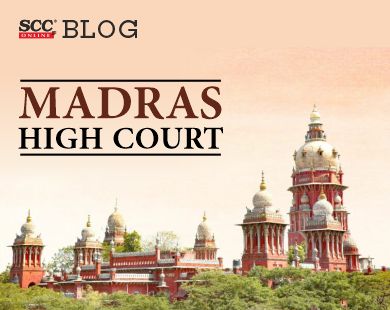Madras High Court: In a case filed by the petitioner- candidate seeking the reason for his non-selection as well as an explanation as to why after him being converted to Islam, TNPSC did not treat him under the “BC (Muslim)” category but considered him under the “General” category, G R Swaminathan, J., decided not to interfere with the impugned decision as the conversion certificate declaring the petitioner’s conversion only states that the petitioner has become a Muslim and nothing more.
The petitioner as well as his family members were Hindus and belonged to Most Backward Class (DNC). They got converted to Islam. The Zonal Deputy Tahsildar, Ramanathapuram Taluk issued a community certificate certifying that the petitioner belongs to Labbais community. When TNPSC issued Notification inviting applications for Combined Civil Services Examination – II, the petitioner qualified for preliminary and mains but was not selected. He invoked the provisions of the Right to Information Act, 2005 and came to know that the reason for his non-selection was because TNPSC did not treat him under the “BC (Muslim)” category but considered him under the “General” category. Aggrieved by this, the present writ petition has been filed.
In G. Michael v. S. Venkateswaran, (1952) 1 Mad LJ 239, the Court observed that a member of one of the castes or sub-castes when he is converted to Islam ceases to be a member of any caste. He becomes just a Mussalman and his place in Muslim society is not determined by the caste to which he belonged before his conversion.
In Kailash Sonkar v. Maya Devi, (1984) 2 SCC 91, it was held that the caste to which a Hindu belongs is essentially determined by birth and that if a Hindu is converted to Christianity or another religion that does not recognize caste, the conversion amounts to the loss of the said caste. The original caste remains under eclipse and as soon as the person is reconverted to the original religion, the eclipse disappears, and the caste automatically revives.
The Court noted that the Government of Tamil Nadu had in as many as four letters laid down that the candidates who have converted to Islam from other religion will be considered only as “others category”. Thus, applying the hierarchy principle, it is obvious that the certificate issued by the jurisdictional Deputy Tahsildar will rank below that of a government letter.
The Court further noted that the jurisdictional Deputy Tahsildar had acted irregularly by breaching the mandate set out in the government letters which are binding on him. The recruitment agency is therefore obliged to disregard such community certificates issued in breach of the instructions issued by the Government.
The Court relied on Ispat Industries Ltd. v. Commissioner of Customs, Mumbai, (2006) 12 SCC 583 to hold that government letters will prevail over any community certificate issued in breach thereof.
Thus, the Court decided not to interfere with the impugned non-selection.
[U Akbar Ali v. State of Tamil Nadu, 2022 SCC OnLine Mad 5567, decided on 01-12-2022]
Advocates who appeared in this case:
For Petitioner: Mr. M. Ajmal Khan, Senior Counsel for Mr. C. Venkatesh Kumar;
For Respondents: Mr. A. K. Manikkam Special Government Pleader for R1;
Mr. V. Panneer Selvam for R2.
*Arunima Bose, Editorial Assistant has reported this brief.







